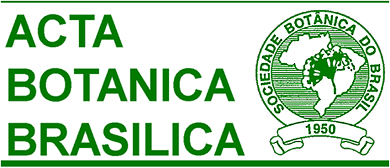ABSTRACT
Global change and coastal eutrophication are affecting macroalgae worldwide. We analyzed the effects of increased water temperature (25, 28 and 32 °C) and eutrophication on the growth of Bostrychia binderi and Bostrychia montagnei in a range of salinities (18, 24, 30, 36 and 42 PSU) through three independent multifactorial experiments. Both species had higher growth at 25 °C than at 28 and 32 °C (warming scenario projected by IPCC), suggesting a negative effect of ocean warming. The species showed a broad tolerance to the range of salinities tested, with higher growth at 36 and 42 PSU, as a local adaptation strategy. Oligotrophic seawater significantly affected the growth of both species because the lowest growth was found in this condition, whereas highest growth was found with increased availability of nutrients, which is probably because estuaries are nutrient-rich environments due to continental runoff. High temperatures, low salinities and few nutrients had negative interactive effects on the growth of both species. Our results show that ocean warming can be detrimental to the studied macroalgae, and that both species are tolerant to eutrophication, with B. montagnei being more sensitive than B. binderi. Our results also reinforce the euryhaline characteristic of the genus Bostrychia.
Keywords:
Bostrychia; Bostrychietum; climate change; ecophysiology; estuarine macroalgae; eutrophication; global change; growth; salinity variation; sea level rise

 Thumbnail
Thumbnail
